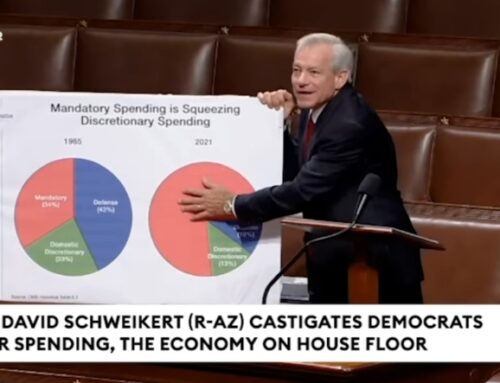In its statist, bureaucratic and “best and brightest” attempt to insert itself (without Congressional authority) into the climate change scare, the EPA declared in 2009 that carbon dioxide (what you exhale and plants absorb) is a danger to public health. This unprecedented power grab will result in the EPA governing – and draining wealth from – huge sectors of the economy…and ultimately your wallet.
Yet the Clean Air Act (which defines the EPA’s role), provides no legitimacy to the EPA’s finding. As Marlo Lewis points out in this excellent piece at MasterResource:
The Clean Air Act directs EPA to identify and regulate pollutants that damage air quality. Lead is an air quality contaminant, so it fits perfectly within the statutory framework. However, search the Clean Air Act from top to bottom, and you will not find any Title, section, or subsection on global climate change, nor will you find the terms “greenhouse gas” and “greenhouse effect.” Just because EPA has authority to regulate lead as an air quality contaminant, it does not follow that EPA has authority to regulate carbon dioxide as a greenhouse gas.
This end run around Congress raises grave Constitutional concerns. The EPA is proceeding due to the contortions of logic in the Supreme Court’s 2007 ruling, Massachusetts v. EPA (549 U.S. 497, 2007). Under the majority’s selective reading, Lewis observes:
[…] a thing may be an “air pollutant” even if it does not degrade air quality. As Justice Scalia quipped in dissent, given the majority’s reading, “It follows that everything airborne, from Frisbees to flatulence, qualifies as an ‘air pollutant.’” Indeed, if anything emitted into or entering the ambient air is an “air pollutant,” then even absolutely clean, pollution-free air is an “air pollutant” the moment it moves or circulates.
Yet, we have the power to stop this unbridled power grab. The power to create and define a law comes only from Congress (as representatives of we the people), not from the Supreme Court or the EPA. As Lewis points out:
Members of Congress, however, have a duty to exercise their own judgment to determine what the law means. They cannot automatically defer to the Court’s interpretation without Congress ceasing to be an independent and co-equal branch. A doctrine of judicial infallibility is as alien to our Constitution as is a doctrine of bureaucratic supremacy.
Scheduled for a June 10 vote, Senator Murkowski’s resolution asserts Congress’ authority to define the role of the EPA. Lewis sums up what’s at stake:
The importance of the vote on S.J.Res.26 is difficult to exaggerate. Nothing less than the integrity of our constitutional system of separated powers and democratic accountability hangs in the balance.
Contact Senator Webb and Senator Warner today and urge them vote to support for Murkowski and S.J.Res.26.




